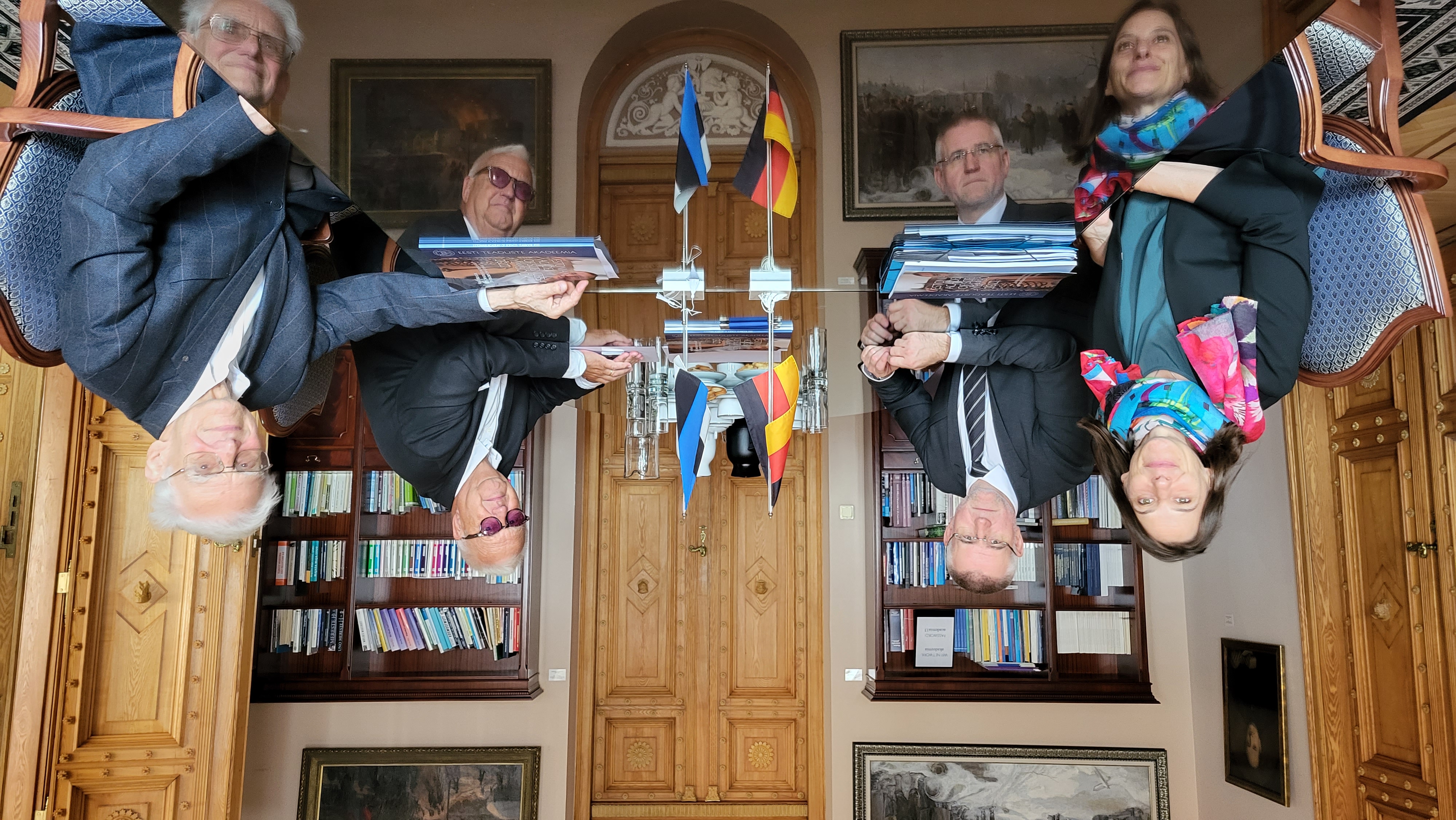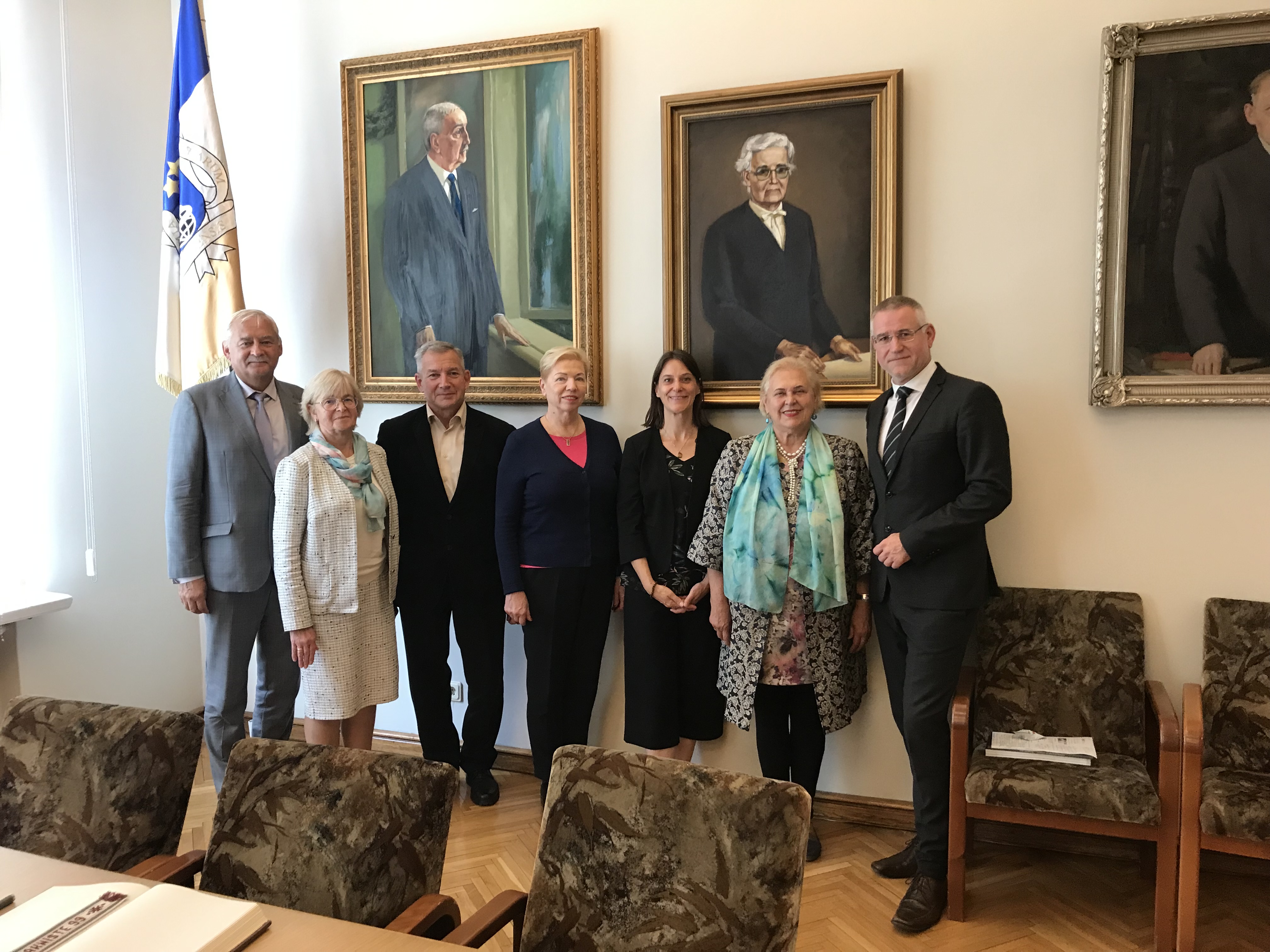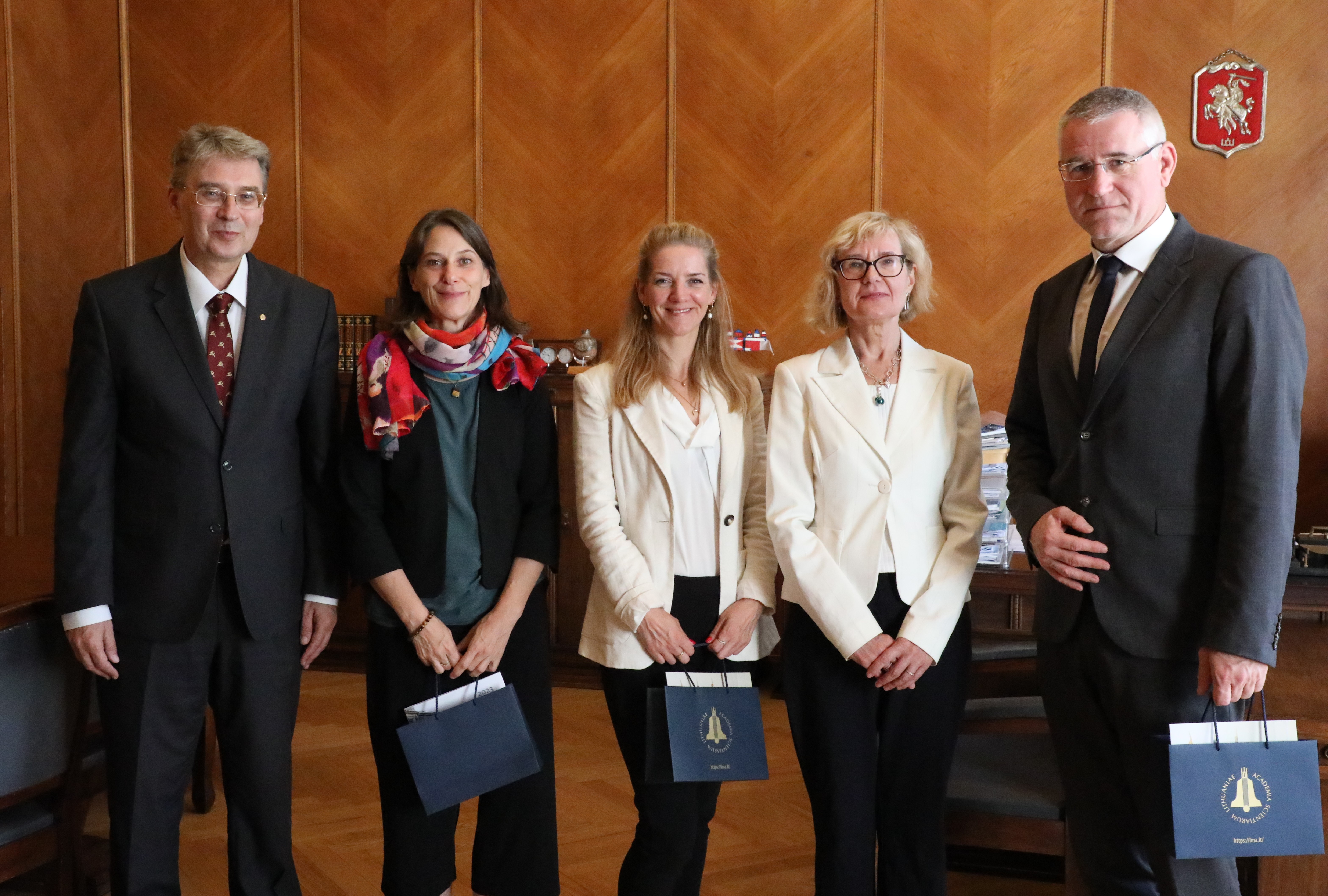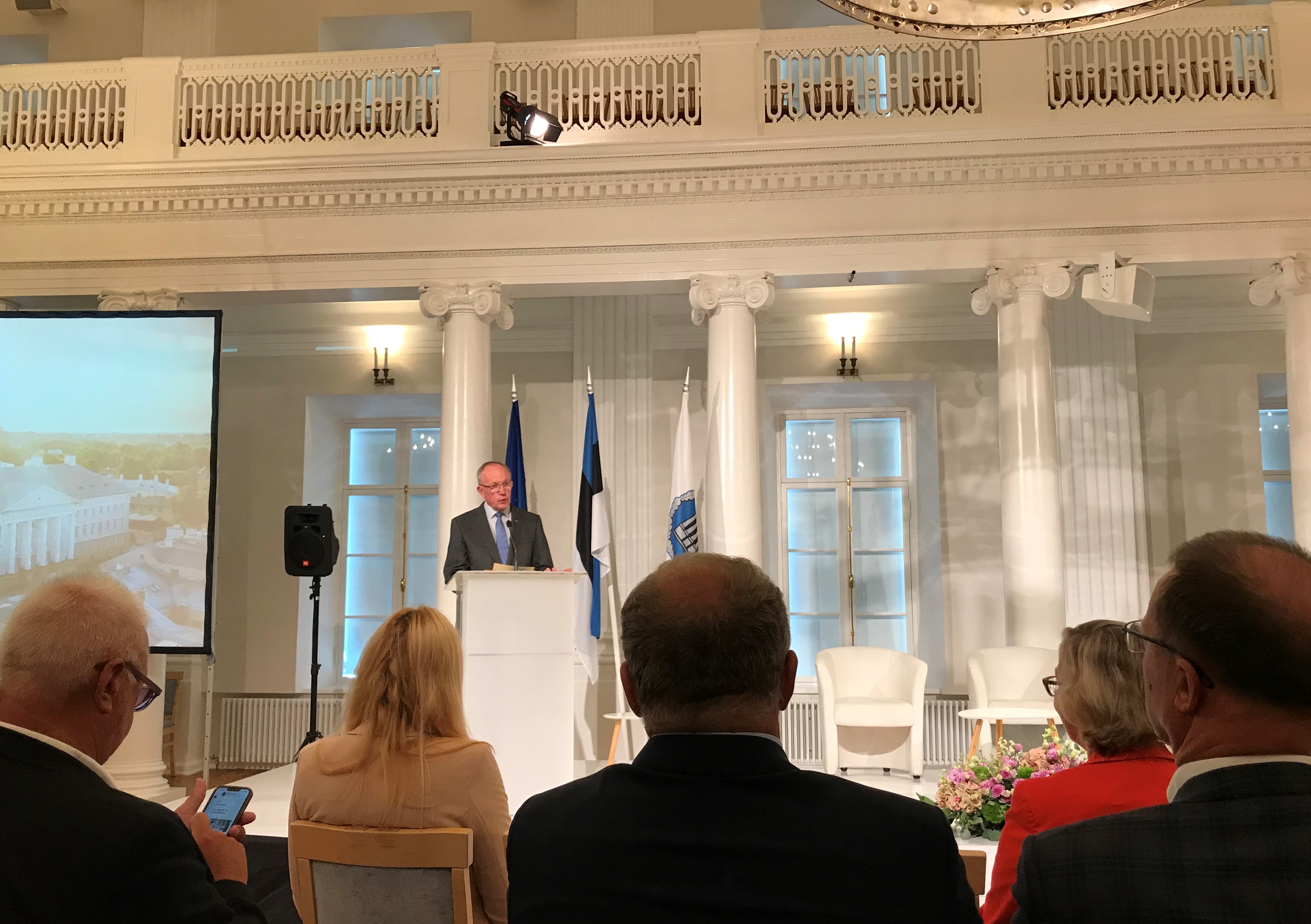Expansion of DFG contacts in the Baltic States
This autumn, the DFG visited the most important research institutions and the leading universities in the three Baltic states with the aim of intensifying scientific cooperation in the region. The focus was on expanding the DFG’s institutional cooperation with the Estonian Research Council, the Latvian Council of Science, the Research Council of Lithuania and the National Academies of Sciences.
Meeting with the Estonian Academy of Sciences
© DFG
(30.10.23) Estonia, Latvia and Lithuania are becoming increasingly important as partner countries for research cooperation. They are currently gaining international relevance in research policy due to their proximity to Scandinavia and Eastern Europe. They also have dynamically developing research systems and are evolving research focuses of the highest quality that enjoy visibility throughout Europe. Not least as a result of increasing scientific ties with Germany, a DFG delegation visited all major research and funding organisations in the three countries in mid-September 2023. The objective of the trip was to gain detailed insights into the research landscape in each country and strengthen institutional cooperation.
For this reason, the programme included meetings with the national research councils already known to the DFG from the Global Research Council (GRC) and the Science Europe circle, as well as with the academies of sciences and the most renowned universities in the region in Tartu, Tallinn, Riga and Vilnius. For a long time now, the DFG has funded bilateral projects at these sites in various research fields with the participation of German universities and research institutions. One outstanding project is the trilateral International Research Training Group “Baltic Peripeties” (RTG 2560) at the universities of Greifswald, Trondheim and Tartu, which is scheduled to run for nine years. The DFG delegation also met with the German embassies and local DAAD representatives in each of the countries.
Furthermore, at the invitation of the Research Councils, the delegation was able to participate in two high-level conferences in Estonia and Latvia on the state of EU funding in the countries. Close insights into regional research strengths were particularly gained through attendance at the opening event of two new Teaming for Excellence centres in the fields of Digitalised Bioengineering and Personalised Medicine at the University of Tartu in Estonia, which are receiving a total of €60 million in funding. Participation in an international conference of historians at the Vilnius University also revealed the multifaceted intra-European cooperation being pursued in the region, as well as close cooperation with Germany.
The trip showed that the Baltic States are continuing to develop their competences in EU-funded research programmes, especially under Horizon Europe. In addition to a marked focus on applied research, this also means that capacity and investment in the area of basic research are increasing on an ongoing basis. In particular, the health sciences, digitisation, marine research and the studies in the area of history and antiquity offer significant potential for cooperation with Germany. The DFG would like to expand this further in the coming months in collaboration with the Research Councils and Academies of Sciences and Humanities. Joint information events for researchers in all three countries are planned for spring 2024 – also with the support of the German embassies and other German research funding organisations.



